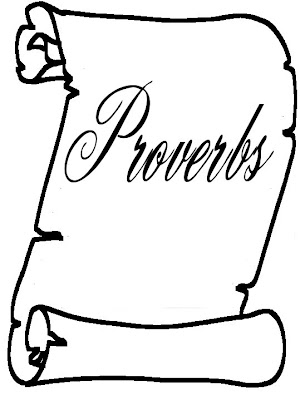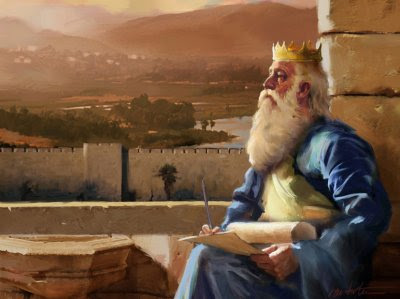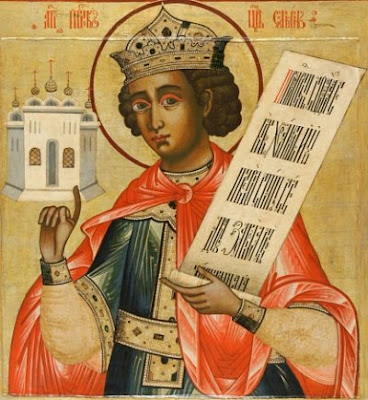 Chapter 1
Chapter 1
Sunday ~ Proverbs
 Chapter 1
Chapter 1

 Chapter 1
Chapter 1

The proverbs speak of flattery. Here are a couple of key verses:
29:5 Whoever flatters his neighbor
is spreading a net for his feet.
Here, the word flattery conveys the idea of “smooth talk that deceives.”
28:23 He who rebukes a man will in the end gain more favor
than he who has a flattering tongue.
Remember to “speak the truth in love.”

Gossip is deadly whether as a noun or as a verb. The wise individual does not participate in gossip — even as a listener. Here are some things that King Solomon had to say about gossip in the book of Proverbs:
11:13 A gossip betrays a confidence,
but a trustworthy man keeps a secret.
17:9 He who covers over an offense promotes love,
but whoever repeats the matter separates close friends.
18:8 The words of a gossip are like choice morsels;
they go down to a man’s inmost parts.
20:19 A gossip betrays a confidence;
so avoid a man who talks too much.
16 There are six things the LORD hates,
seven that are detestable to him:
17 haughty eyes,
a lying tongue,
hands that shed innocent blood,
18 a heart that devises wicked schemes,
feet that are quick to rush into evil,
19 a false witness who pours out lies
and a man who stirs up dissension among brothers

This final chapter of Romans begins with the introduction of Phoebe of Cenchreae. She is most probably the person that carried Paul’s letter to the church at Rome. In Paul’s word:
Interesting that the list starts with this exemplary woman of Cenchreae, Phoebe.

There was a cultural problem in the church at Rome. Meat from Roman butcher shops had mostly been given as offerings in pagan rituals before it was sold. Was this food “offered to idols?” In Jewish culture, wine was on the table for most meals. Some believers identified alcohol with drunkenness and debauchery. This was causing a problem. Paul gave them the following instruction [found in Romans Chapter 14, Amplified Bible]:
“17[After all] the kingdom of God is not a matter of [getting the] food and drink [one likes], but instead it is righteousness (that state which makes a person acceptable to God) and [heart] peace and joy in the Holy Spirit.
18He who serves Christ in this way is acceptable and pleasing to God and is approved by men.
19So let us then definitely aim for and eagerly pursue what makes for harmony and for mutual upbuilding (edification and development) of one another.
20You must not, for the sake of food, undo and break down and destroy the work of God! Everything is indeed [ceremonially] clean and pure, but it is wrong for anyone to hurt the conscience of others or to make them fall by what he eats.”
 This lesson is taken directly from The Message, which is a modern rendering of the Bible.
This lesson is taken directly from The Message, which is a modern rendering of the Bible.
Romans 14:2-12 — “For instance, a person who has been around for a while might well be convinced that he can eat anything on the table, while another, with a different background, might assume he should only be a vegetarian and eat accordingly. But since both are guests at Christ’s table, wouldn’t it be terribly rude if they fell to criticizing what the other ate or didn’t eat? God, after all, invited them both to the table. Do you have any business crossing people off the guest list or interfering with God’s welcome? If there are corrections to be made or manners to be learned, God can handle that without your help.
Or, say, one person thinks that some days should be set aside as holy and another thinks that each day is pretty much like any other. There are good reasons either way. So, each person is free to follow the convictions of conscience.
What’s important in all this is that if you keep a holy day, keep it for God’s sake; if you eat meat, eat it to the glory of God and thank God for prime rib; if you’re a vegetarian, eat vegetables to the glory of God and thank God for broccoli. None of us are permitted to insist on our own way in these matters. It’s God we are answerable to—all the way from life to death and everything in between—not each other. That’s why Jesus lived and died and then lived again: so that he could be our Master across the entire range of life and death, and free us from the petty tyrannies of each other.
So where does that leave you when you criticize a brother? And where does that leave you when you condescend to a sister? I’d say it leaves you looking pretty silly—or worse. Eventually, we’re all going to end up kneeling side by side in the place of judgment, facing God. Your critical and condescending ways aren’t going to improve your position there one bit. Read it for yourself in Scripture:
So tend to your knitting. You’ve got your hands full just taking care of your own life before God.”
Is there any need to add to this Bible portion? I think not.

She awoke again. It was the second night of poor sleep for the woman from Galilee. This was not the first time that she had wakened this night. Light from the waning gibbous moon came through the western window. Before long the sun would rise. Even now, she could complete her mission.
The teacher had changed her life, even as he had changed the lives of others. She had been a woman of the street. She had no good reputation. She had made bad choices and the consequences had multiplied as she slipped deeper and deeper into a life of degradation.
Then the teacher found her. He had cast seven demons from her. Having been physically, mentally and morally delivered, she had faithfully followed his teaching. She became part of a community of people who had been delivered.
She rose from the mat on which she had slept and made ready to visit the tomb where the teacher’s body lay. Two days ago, she had watched the rich man and his timid friend as they placed the teacher in the tomb. Then soldiers came and rolled a stone in front of the entrance. Then they sealed it and set a guard over it.
As she prepared to leave, two other women from the group joined her and together the three approached the tomb. To their great surprise, the stone no longer blocked the entrance. Inside, the tomb was empty. What did it mean? Her feet swiftly carried her back to the place they were staying and she reported what she had seen to the bold one. He and the youth ran back the way she had come to find that the stone had been moved and the tomb was empty. They saw this, but still didn’t understand that the teacher had risen from the dead — just as the prophets had foretold.
The men returned to tell the others. The woman remained and wept. Through her tear-filled eyes she looked inside the tomb and there were two angels dressed in white. They asked her why she wept. Her tearful answer was, “They have taken him away, and I don’t know where.”
Then a kindly voice spoke from behind her. At first she didn’t recognize him. Then he called her by name, “Mary,” he said. She turned, and recognizing him cried out, “Teacher.”
Shortly after this, the teacher showed himself to others of his followers. They received him with joy as folks still do today.
With this, the woman left the pages of history, and we have no further reports concerning her. She remains for us as an example of faith, devotion and dedication to the teacher and deliverer.
The teacher still lives.

The week had started with the teacher riding into the city on a young donkey. The city was crowded. Many had come to observe the Passover celebration in that great city. The crowds had greeted him enthusiastically as they spread their coats and palm branches along the way.
It had been a very busy week for the teacher and for those that had accompanied him. Thursday was a day of preparation for the celebration. And everything was in place as the sun set and Thursday came to an end. At sunset Friday began. (By our modern reckoning, it would still be Thursday for another 6 hours.)
And what a Friday it was! It began that evening as the teacher gathered his followers and they went in to celebrate Passover with the Seder meal. This year was different, and the teacher said things that they found difficult to understand and even more difficult to accept. Would he really be leaving them?
After the meal, they sang a song and went out. The teacher led them to a place where he asked them to wait while he went on and prayed. The meal and the hour left them feeling drowsy and they napped. He woke them, but they napped again. Finally, it was time to go. Now the tired followers could get some rest.
But wait, here comes their treasurer. There are temple guards with him. He greets the teacher and the guards arrest the teacher. What followed was the stuff that nightmares are made of. The followers grew fearful, only the bold one followed to see what would happen. And the bold one warmed himself by a fire, and when confronted, he denied knowing the teacher. It was just as the teacher said it would be. The bold one ran weeping for his cowardice.
The teacher, now alone, was tortured, questioned, tried and convicted. His sentence? Death.
That Friday afternoon, the teacher hung upon a wooden cross. Only one of his male followers — the youngest of them — was there with the teacher’s mother and some other women to witness his suffering and death.
The day would end at sunset, and the next day was the Sabbath. A wealthy man of influence who had become a follower went with his previously timid friend and received permission to receive the teacher’s body and to give it a proper burial. This they did as the women watched.
The Sabbath would begin at sundown and so they quickly performed their duty as the time approached. The governor sent soldiers to seal the tomb and to stand guard over it. The religious leaders had warned him that the teacher’s followers might try to steal the body.
Then, the sun set. Friday was over. Sabbath rest had begun. The teacher’s body rested in the rich man’s tomb.